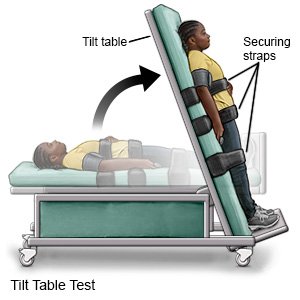Sick Sinus Syndrome
Medically reviewed by Drugs.com. Last updated on Aug 4, 2025.
Sick sinus syndrome is a heart rhythm disorder. Your heart may beat too slowly or too quickly. It may go back and forth from too slow to too fast. You may have pauses in between beats. Keep track of your heart rate. Follow activity guidelines to help keep your heartbeat as steady as possible.
 |
WHILE YOU ARE HERE:
Informed consent
is a legal document that explains the tests, treatments, or procedures that you may need. Informed consent means you understand what will be done and can make decisions about what you want. You give your permission when you sign the consent form. You can have someone sign this form for you if you are not able to sign it. You have the right to understand your medical care in words you know. Before you sign the consent form, understand the risks and benefits of what will be done. Make sure all your questions are answered.
Rest
until your heart rhythm is under control. Your healthcare provider will tell you when it is okay to get out of bed. Tell your healthcare provider before your get up for the first time. If you feel weak or dizzy, sit or lie down right away.
Medicines:
- Heart medicine may be used to help control your heart rate and rhythm. You may need more than one medicine to treat your symptoms.
- Blood thinners may be used if you are at increased risk for a stroke.
Tests:
- An ECG records the electrical activity of your heart. It may be used to check for problems with the way electrical signals travel through your heart.
- A cardiac event monitor will be used to track your heart rate and rhythm.
- A cardiac loop recorder is a device implanted in your chest or armpit, just under the skin. The device will record any heart rhythm problems automatically. You may also receive a handheld controller. You will press a button on the controller when you have symptoms, such as dizziness or lightheadedness. The device will record any rhythm problem happening at that moment.
- A cardiac stress test checks if your heart muscle is getting enough blood during rest and stress. Your heart may be placed under stress with medicine or exercise.
- A tilt table test checks your heart and blood pressure when your body changes positions.

- An electrophysiology study is a procedure to map the electrical pathways in your heart that control your heartbeat.
Treatment:
- You may need extra oxygen if your blood oxygen level is lower than it should be. You may get oxygen through a mask placed over your nose and mouth or through small tubes placed in your nostrils. Ask your healthcare provider before you take off the mask or oxygen tubing.
- Cardioversion is a procedure to return your heart rate and rhythm to normal. It can be done with medicine or an electric shock. You may need cardioversion if medicine does not work.
- Ablation may be used if your heartbeat is too fast. Your healthcare provider will damage the small area of your heart causing abnormal electrical signals. This will stop the electrical problem and allow your heart to beat regularly.
RISKS:
You may faint when your heart rate gets too low. You may develop seizures, high blood pressure, or heart failure. Your heart may stop beating, or you may have a heart attack or stroke. Organs such as your kidneys may not get enough oxygen. This can cause organ failure.
CARE AGREEMENT:
You have the right to help plan your care. Learn about your health condition and how it may be treated. Discuss treatment options with your healthcare providers to decide what care you want to receive. You always have the right to refuse treatment.© Copyright Merative 2025 Information is for End User's use only and may not be sold, redistributed or otherwise used for commercial purposes.
The above information is an educational aid only. It is not intended as medical advice for individual conditions or treatments. Talk to your doctor, nurse or pharmacist before following any medical regimen to see if it is safe and effective for you.
Learn more about Sick Sinus Syndrome
Treatment options
Care guides
Further information
Always consult your healthcare provider to ensure the information displayed on this page applies to your personal circumstances.
